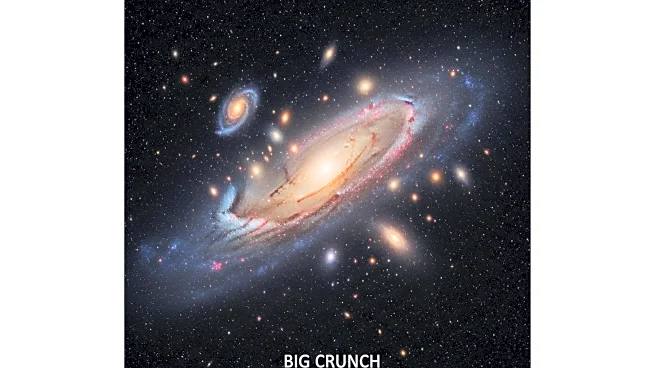What's Happening?
A new study suggests that the universe may not expand indefinitely but could eventually collapse in a 'big crunch'. This theory challenges the long-held belief that the universe's expansion is driven by a positive cosmological constant. Instead, the study posits a negative cosmological constant, indicating that the universe's expansion could slow, stop, and reverse. The research incorporates recent data from the Dark Energy Survey and the Dark Energy Spectroscopic Instrument, suggesting that dark energy, possibly influenced by a hypothetical particle called an axion, may evolve over time.
Why It's Important?
This study has significant implications for cosmology, as it challenges the prevailing understanding of the universe's fate. If the universe is indeed heading towards a 'big crunch', it would reshape theories about cosmic evolution and the role of dark energy. The potential for a finite universe lifespan could influence future research directions and philosophical considerations about the nature of existence. As new data emerges, the scientific community will need to reassess models of cosmic expansion and contraction, potentially leading to groundbreaking discoveries in physics and astronomy.










